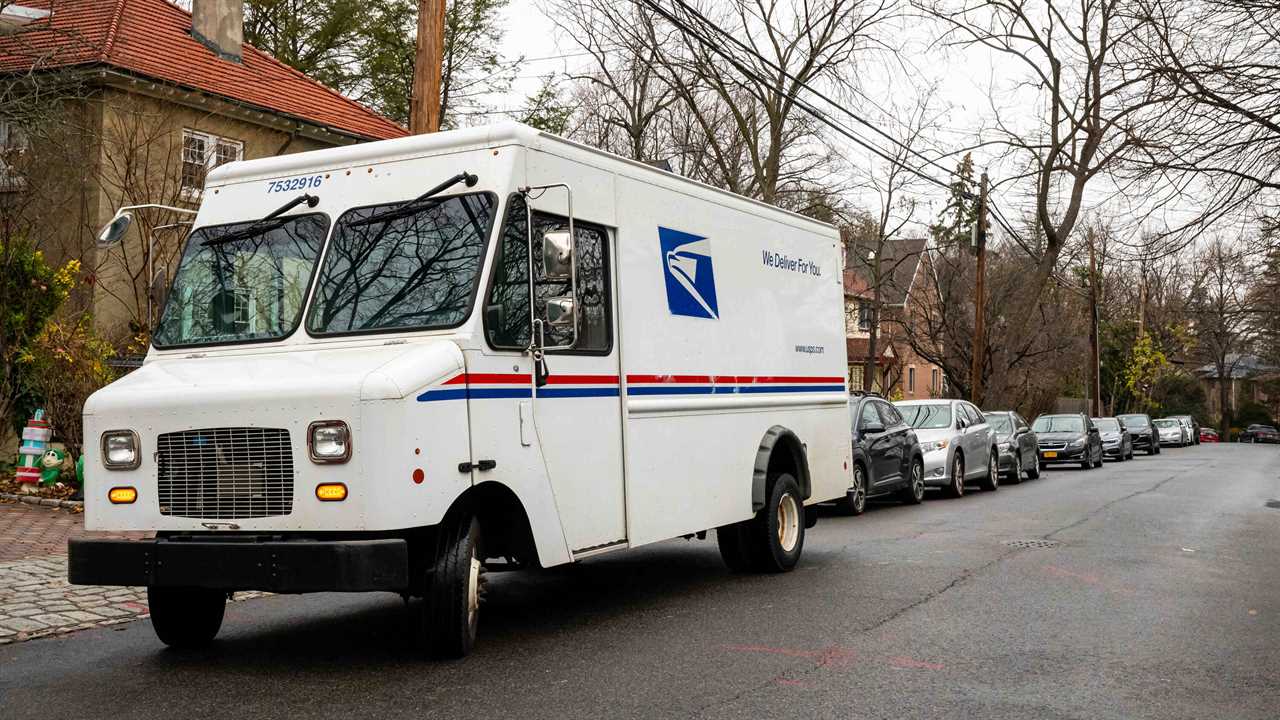
WASHINGTON — A group of House Democrats called Monday for an investigation into a decision by Postmaster General Louis DeJoy to purchase up to 165,000 gasoline-powered mail trucks over the Biden administration’s objections that the multibillion-dollar contract would undermine the nation’s climate goals.
The contract, worth up to $6 billion over 10 years, would be the Postal Service’s first large-scale vehicle purchase in three decades.
In a letter to United States Postal Service Inspector General Tammy Whitcomb, lawmakers questioned whether the Postal Service had complied with a law requiring environmental reviews of major federal actions.
Both the Environmental Protection Agency and the White House Council on Environmental Quality have said that the Postal Service had made the wrong decision to buy gasoline powered trucks based on a flawed environmental analysis.
The Postal Service estimated that the new vehicles would get 29.9 miles per gallon. A separate analysis by the Environmental Protection Agency found the vehicles could achieve less than half that: just 14.7 miles per gallon. And with the air-conditioning running, the new trucks would only get 8.6 miles per gallon, the E.P. A. said.
A Critical Year for Electric Vehicles
The popularity of battery-powered cars is soaring worldwide, even as the overall auto market stagnates.
- Going Mainstream: In December, Europeans for the first time bought more electric cars than diesels, once the most popular option.
- Turning Point: Electric vehicles account for a small slice of the market, but in 2022, their march could become unstoppable. Here is why.
- Tesla’s Success: A superior command of technology and its own supply chain allowed the company to bypass an industrywide crisis.
- Rivian’s Troubles: As the electric vehicle maker pares down its delivery targets for 2022, investors worry the company may not live up to its promise.
- Green Fleet: Amazon wants electric vans to make its deliveries. The problem? The auto industry barely produces any of the vehicles yet.
The E.P.A. said the review did not consider any feasible alternatives to gas-powered vehicles and that the Postal Service issued a contract for the vehicles before even completing its flawed review.
Carolyn Maloney, the chairwoman of the House Committee on Oversight and Reform, and other Democrats on the panel asked Ms. Whitcomb to determine if the Postal Service made “inaccurate or unproven assumptions” about the environmental impact of combustion engine vehicles, including underestimating their greenhouse gas emissions.
“Postal vehicles serve a public purpose — helping to deliver the mail six days a week across the United States — and must do so in an environmentally sound manner,” the lawmakers wrote.
President Biden has ordered all federal agencies to phase out the purchase of gasoline-powered vehicles and buy only zero-emissions cars and trucks by 2035 as part of his agenda to speed the transition away from fossil fuels and tackle climate change. The Postal Service, however, is an independent agency that is not bound by the administration’s climate rules.
The Postal Service owns more than 231,000 vehicles, one of the largest civilian fleets in the world. The distinctive white, red and blue trucks roam the country from congested cities to quiet rural towns. An all-electric fleet would not only deliver environmental benefits and help an emerging manufacturing sector, but serve as a powerful symbol of an administration that is determined to speed the transition away from fossil fuels.
The Postal Service has argued it could not afford an all-electric fleet and that 10 percent of the new trucks would be electric while 90 percent would be gasoline-powered.
Sue Brennan, a spokeswoman for the Postal Service, said in a statement that the agency is committed to electrifying its fleet and said it will “continue to pursue the acquisition” of additional electric vehicles as its financial position improves.”
The Build Back Better Act, Mr. Biden’s centerpiece legislative agenda, includes about $6 billion to help the Postal Service pay for electric vehicles and charging stations. That bill is stalled in Congress.
Environmental groups and other government agencies have called the Postal Service’s decision flawed, saying it relies on unrealistic assumptions — like gasoline at $2.19 a gallon. That’s well below the $4.33 average gas price Americans are paying in the wake of Russia’s invasion of Ukraine, but it is also far lower than the average pump price before the war.
Congress earlier this month approved a $107 billion financial overhaul of the Postal Service, and it currently is awaiting Mr. Biden’s signature. Neither the House nor Senate version, both of which passed with broad bipartisan support, included amendments that would force a change in the agency’s truck contract.
Did you miss our previous article...
https://trendinginthenews.com/usa-politics/ginni-thomas-says-she-attended-jan-6-rally






